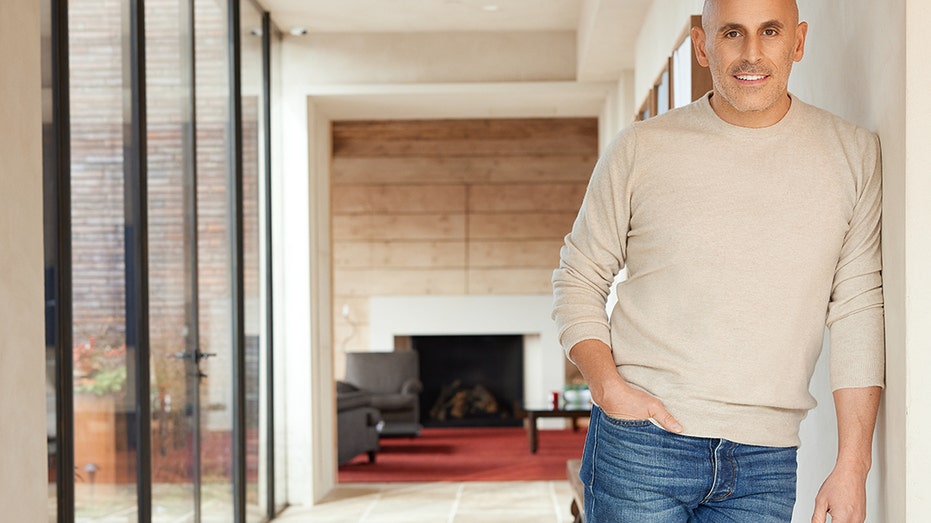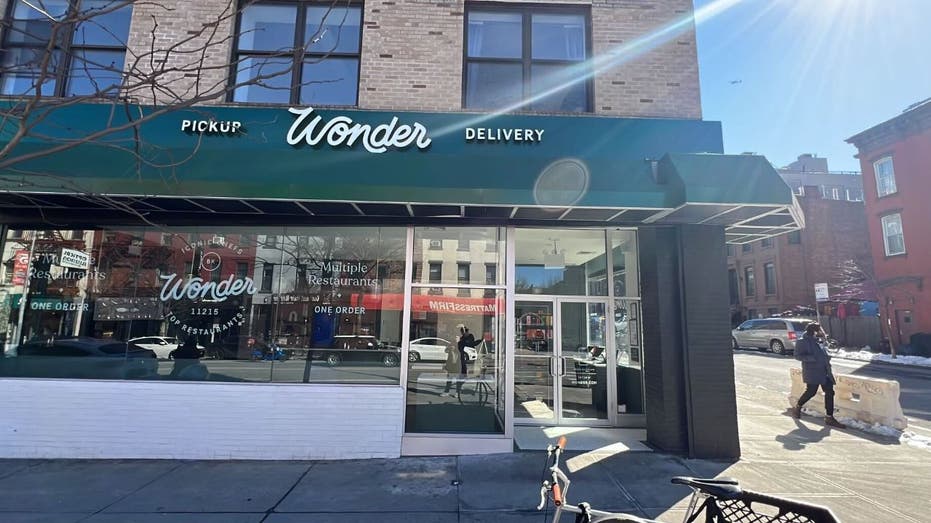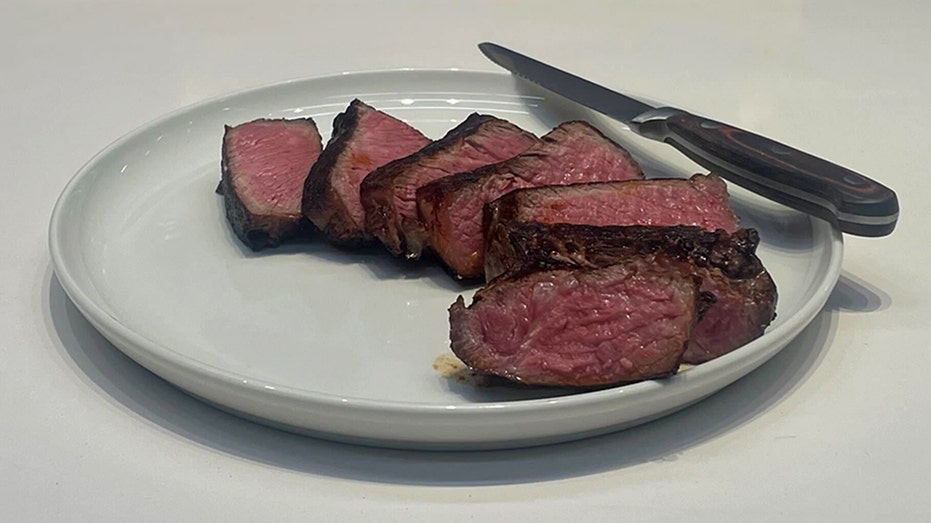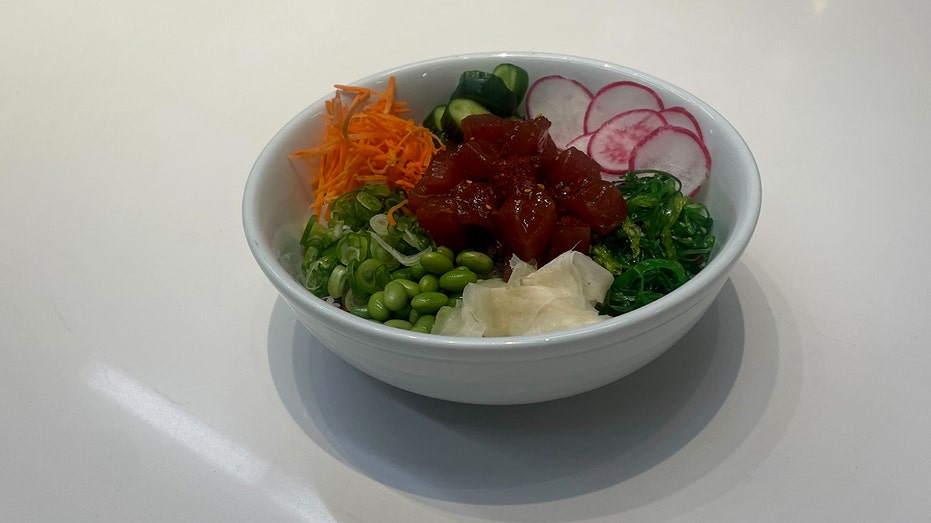Marc Lore’s startup aims to take bite out of food delivery market
Wonder is aiming to have 90 locations in the New York metro within the next 2 years
Marc Lore shares big plans for food delivery startup Wonder
Former Walmart exec Marc Lore on the growth of his food delivery startup Wonder and plans to expand its brick-and-mortar footprint.
Serial entrepreneur Marc Lore is sprinting from one hour-long meeting to the next, with board members and countless investors, as he dedicates over 100 hours a week to building a company that he believes can disrupt an industry now dominated by the likes of Uber Eats and DoorDash.
If you asked Lore, who solidified his reputation as an influential player by selling one business to Walmart and the other to Amazon, he'd tell you this is the company he's waited his whole career for.
"The mission really gets me fired up," Lore told FOX Business in the middle of a test kitchen in Wonder's research and development facility in New Jersey.
With Wonder, Lore is trying to create a new category of "fast-fine" dining by making quality meals more accessible and affordable. He's building delivery-first food hall-style storefronts that sell recipes from award-winning chefs and restaurants from around the country, allowing customers to order from multiple places all in one order. He dubs it a "mealtime super app."
NYC SUED BY FOOD DELIVERY SERVICES OVER NEW MINIMUM WAGE LAW
| Ticker | Security | Last | Change | Change % |
|---|---|---|---|---|
| UBER | UBER TECHNOLOGIES INC. | 73.91 | -0.86 | -1.15% |
| DASH | DOORDASH INC. | 186.24 | +3.77 | +2.07% |
"It's rare that you have an opportunity to disrupt a trillion-dollar industry," the entrepreneur said. He also insisted that it is the right time to disrupt it given that "people are putting an incredible price on convenience and…not wanting to cook anymore."

Chai Pani dish by Wonder. The dish is shrimp masala and basmatti rice. (Daniella Genovese / Fox Business / Fox News)
Lore had already catapulted to success in the e-commerce world founding Diapers.com and Jet.com, and then selling them to Amazon and Walmart for about $545 million and $3.3 billion, respectively.
| Ticker | Security | Last | Change | Change % |
|---|---|---|---|---|
| AMZN | AMAZON.COM INC. | 208.72 | -1.60 | -0.76% |
| WMT | WALMART INC. | 129.02 | -2.16 | -1.65% |
With Wonder, the "training wheels are off," Lore said.
Before launching the company in 2018, Lore had watched as third-party food delivery services exploded even with a myriad of issues, from cold food and slow service to high fees. Eventually, he thought, "customers aren't going to continue to accept that level of service over time, that someone is going to come in and sort of vertically integrate and disrupt the space."
Leveraging his entrepreneurial and mathematical expertise, he made the decision "to take the customer value [proposition] to a whole other level."

Marc Lore, CEO of Wonder. Wonder is trying to disrupt the food delivery industry with pioneering a "fast-fine" dining category. (Peter Hurley )
The privately held company was valued at $3.5 billion after closing its latest fundraising round led by Forerunner Ventures and Bain Capital Ventures in 2022. Lore, who already secured $800 million, is in the midst of raising another $500 million as he continues to scale Wonder from 10 to 90 brick-and-mortar locations in the tri-state area within the next two years.
How it works
Lore's team explored the country for the best food across a variety of cuisines and bought the rights to those recipes, so customers could order meals from different famed restaurants and chefs like Bobby Flay and José Andrés in a single delivery.
During its beta period, Wonder utilized Mercedes Sprinter vans as mobile kitchens, where drivers would cook food in front of the customer's home and deliver it to their door. A year ago, it made a hard pivot into brick-and-mortar retail after recognizing it was a more scalable model, and one that provided a higher return on capital.

One of Wonder's locations is situated in the Park Slope neighborhood of Brooklyn, New York. (Leandracreativecophoto / Fox Business)
"As soon as you realize and have conviction that the best course is not the course you're on, you have to change it immediately," Lore said. "People in general underestimate how risky it is to keep the status quo, and they overestimate the risk of change."
NYC PLANS RECHARGING STATIONS FOR FOOD DELIVERY WORKERS
With their brick-and-mortar food-hall style storefronts, the company is able to put 10 restaurants from all over the country, like Tejas Barbeque from Texas, Fred's Meat and Bread from Atlanta or Di Fara Pizza from New York – within a 750-square-foot space that Lore likens to the size of a subway car. In larger locations, Lore is eyeing placing as many as 40 restaurants under one roof.
"These great iconic restaurants can be made available in areas that don't have access to great food… not only access to great food, but also at a lower price point," Lore said.
To keep costs down, the company only uses three pieces of electric equipment to recreate the famed recipes, meaning there is no need for other expensive equipment, gas or even chefs, according to Lore.

Bobby Flay steak by Wonder. It is a spice rubbed New York strip steak. (Daniella Genovese / Fox Business / Fox News)
The company can turn out "high-quality food really fast in a really small space" all while keeping its fees lower in comparison to other delivery aggregators with fast casual food, according to Lore.
"The fact that we can cook a Bobby Flay steak in six minutes without any open flames and without a chef means that the cost to bring that steak to market is much cheaper than it would for a restaurant," Lore said. "We can sell that steak at a much lower price… which means that people have access to healthier food."
GET FOX BUSINESS ON THE GO BY CLICKING HERE
It also recently dropped the price of its Blue Apron oven-ready meals. Wonder acquired the meal kit company to the tune of $103 million in November 2023 and has since offered its customers Blue Apron meal kits and oven-ready meals through delivery and pick-up from Wonder locations to expand its revenue streams.

A tuna Hanu Poke bowl by Wonder. (Daniella Genovese / Fox Business / Fox News)
Customers are "coming back at a clip that I've never seen in, in any [business to consumer] company I've ever been involved in," Lore said. About 60% to 70% of customers come back every 14 days, he noted.
But Lore will tell you that his vision for the company goes way beyond just offering a "transactional service." Eventually, he wants to devise a way for this "mealtime super app" to help consumers track their nutrition intake and even leverage artificial intelligence to help build them custom meal plans.
"Why not give them the nutrition information in a sleep score type way to say, 'Hey, here's your score on nutrition,'" he said. "Like you can see how it could evolve over, over time to be more than just a very transactional service."





















